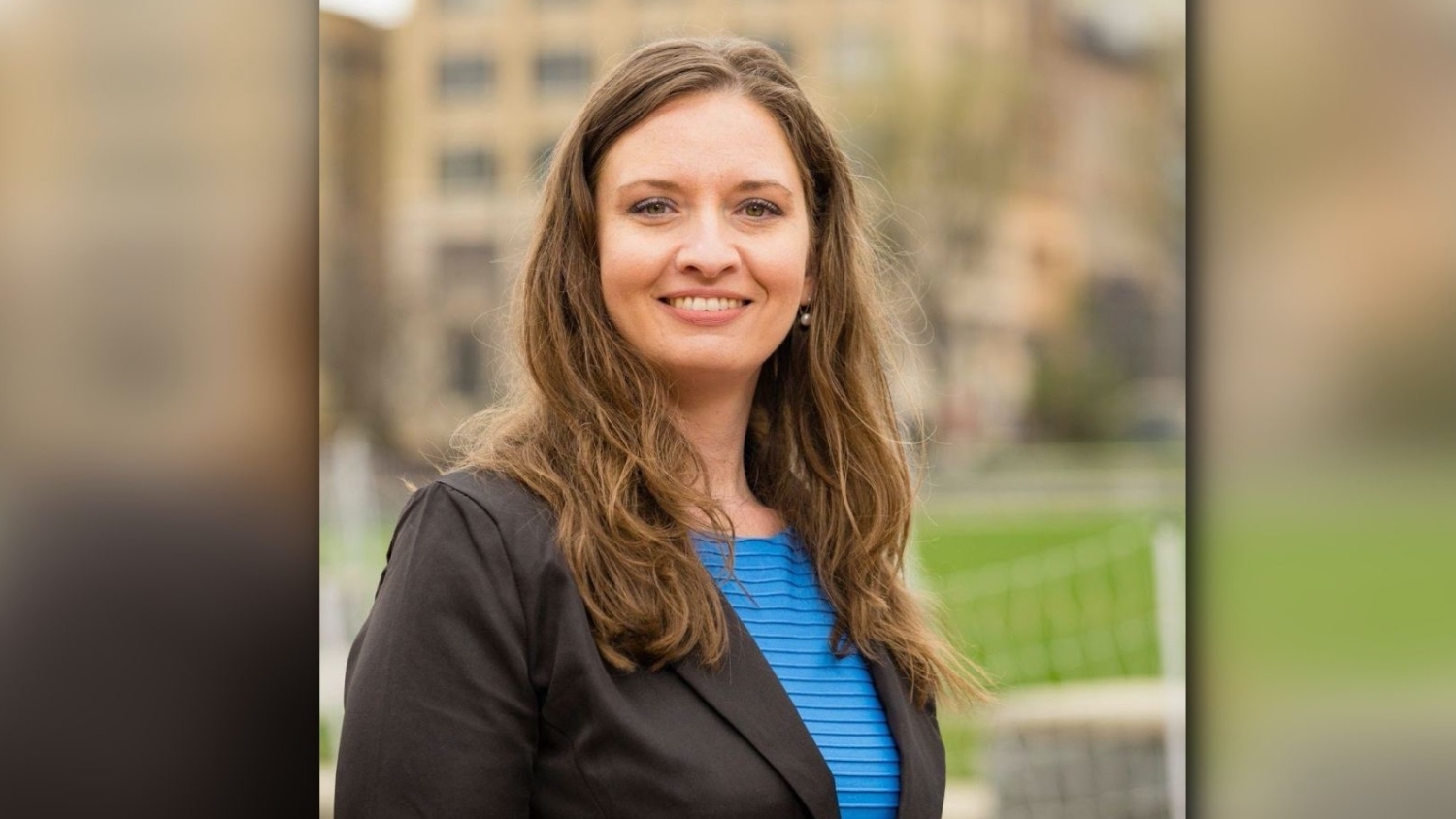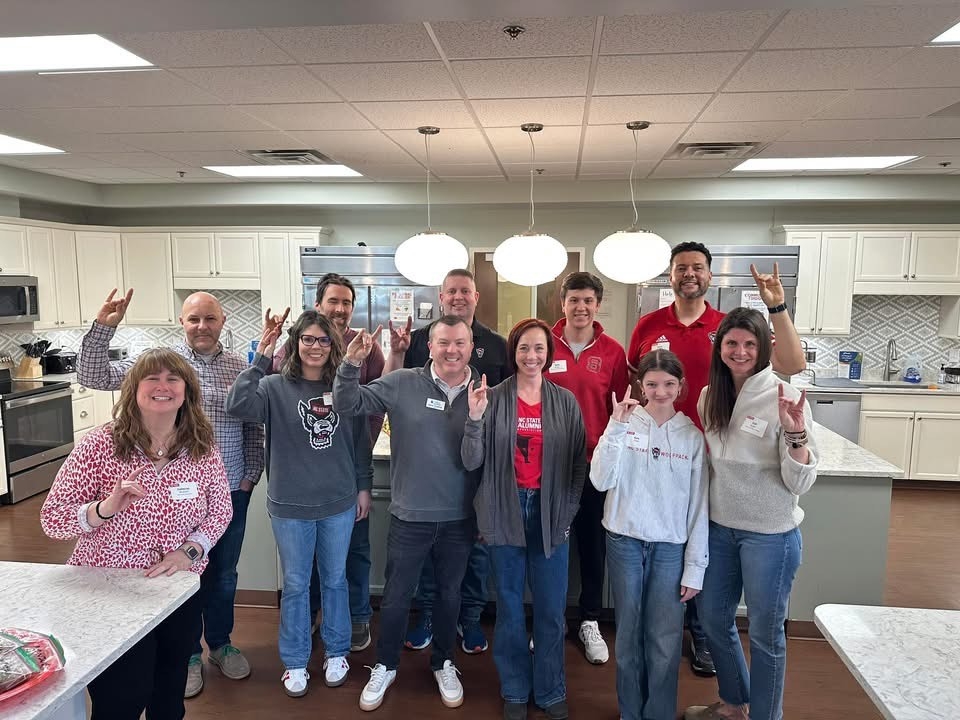Mercy Urgent Care CEO Rachel Sossoman Adds Value, Expands Impact With Jenkins MBA

Looking back on the different chapters of her career, Jenkins Professional Online MBA student Rachel Sossoman acknowledges her career path has been an unconventional one. A decade ago, she spent her days in the classroom as a high school choral director – and today, she acts as CEO for Mercy Urgent Care, an independent urgent care system and nonprofit ministry in Western North Carolina sponsored by Sisters of Mercy of the Americas.
“It’s been a very interesting and wild journey. A lot of prayer and miracles got me to where I am today – as well as some grit and a lot of folks who were willing to mentor me and help me along,” Sossoman says.
Her first chapter took her to Appalachian State University, where she obtained two bachelor’s degrees in music education and vocal performance. Sossoman then worked as a choral director, professional vocalist and private voice instructor for nine years before moving on to the next chapter of her career. She earned a master’s degree in human resources from Western Carolina University and then transitioned into healthcare administration. She joined Mercy Urgent Care as director of human resources in 2015 – and from there, she worked her way up to chief administrative officer. Then, in 2021, she took over as Mercy’s president and CEO.
“Because I have an insatiable appetite for learning and consider school to be my natural habitat, I considered this opportunity to get my MBA to be a blessing on top of a blessing.”
“Because I had a very unorthodox background, and had been at Mercy for a relatively short time, the leadership at Mercy felt that the board should invest in me getting my MBA as I progressed into this role,” she says. “Because I have an insatiable appetite for learning and consider school to be my natural habitat, I considered this opportunity to get my MBA to be a blessing on top of a blessing.”
She started exploring the top online MBA programs in the country and learned that NC State ranked among them – and when she learned about the program’s affordability, she was sold.
“It was a no-brainer at that point. Why would I pay twice the price for something that is comparable to the quality of education at NC State?” she explains. “There were cheaper options in the region that I could have picked, but none that had a national reputation like NC State.
Added value
As for her experience in the program?
“It has been everything I thought it would be and then some. The students I’m in classes with and the faculty who teach the courses – they’re all brilliant people. Some of my professors have been at the forefront of strategy and innovation in the business world – and that raises the bar for the discussions we’re having in class and the quality of the education we’re receiving. The quality of the courses at NC State is unsurpassed,” she says.
“The quality of the courses at NC State is unsurpassed.”
She explains that Chris Hitch’s class, Creating Value in Organizations (MBA 580) – which she jokes should be called ‘Everything a CEO Needs to Know 101’ – is a perfect example of that.
“He talks about how to win as an organization – and specifically, what it means to strategically sustain yourself and grow. He didn’t just give us information, but rather templates for how to break down and analyze the external environment to disaster-proof your decision-making,” Sossoman explains. “As a CEO, I realized right away that I would be taking the content from his class back to my leadership team and into conversations with the board to drive change – and I have. It’s been quite effective.”
After the class was over, Sossoman says, Hitch kept the course content open to students so they could continue to access it – and also offered to remain connected to students. “He’s followed through on that, by the way. He’s kept in touch and has been a great resource for me, and I’ve run some business challenges by him to get a strategist’s perspective,” she says.
In addition to Hitch’s class, Sossoman has found the entire MBA curriculum to be relevant, challenging and practical – and has particularly appreciated the opportunity to go deeper into finance and data throughout the program. Financial Statement Analysis (MBA 590), Data-Driven Managerial Decisions (MBA 506 and MBA 507), and Decision Making Under Uncertainty (MBA 545) are just a few courses that stand out.
“I like to joke that I have a Ph.D. from the ‘School of Hard Knocks’ in that I’ve had to learn how to read profit and loss statements and balance sheets and all those things before jumping into the MBA program. The opportunity to dig into that and learn to read financial statements more in-depth and make data-driven decisions has been so helpful,” she says.
“Decision Making Under Uncertainty gave me a data-driven approach to making decisions when I don’t have all of the information using probabilistic analysis – which is just mind-blowing. I didn’t even know there was a data-driven way to do that,” she continues.
Agile leadership
For Sossoman, the course was particularly valuable for leading an organization that exists to meet urgent needs in Western North Carolina and around the world – and whose mission ultimately hinges on its ability to make swift, smart decisions in times of uncertainty.
“Our mission is to provide excellent healthcare to everybody who needs it, regardless of their circumstances. This means we must have the ability to pivot when a need pops up. Lately, the predominant need has been COVID, and there have been so many decisions we’ve had to make with inevitable uncertainty as part of our decision-making framework,” she says.
She also points to Mercy’s response to Typhoon Haiyan in the Philippines and its Haiti mission following the 2010 earthquake that killed more than 250,000 people as examples of why being agile as an organization is so important.
“We were some of the first medical professionals on the ground in the wake of the earthquake in Haiti. Since then, we have sent more than 30 teams of medical professionals to provide healthcare and various services and supplies. We also helped support medical leaders who built a hospital near the epicenter of the earthquake and provide equipment for it. The latest thing we did was to ship down operating room (OR) equipment,” she says.
Mercy’s work in Haiti and the Philippines, Sossoman says, contributed to Mercy receiving the 2016 National Humanitarian Award from the Urgent Care Association of America.
“In a career like this one, it’s really difficult to sit down at the end of the day and question whether your work that day mattered. There’s no question. Not only did it matter – it’s the thing that mattered to everybody. So that connection to purpose is incredibly rewarding,” she continues.
Ambitious goals
For Sossoman, there is a lot to look back on and be proud of at Mercy – but it’s the ministry’s future that excites her most.
“In the next five years, we have some pretty ambitious growth plans. I think we’re on the threshold of some really great things that will allow us to expand our impact,” she says.
For this reason, she feels particularly grateful for the ways the Jenkins MBA has equipped her to be a better thinker, leader and decision-maker.
“Most people have heard the saying, ‘No margin, no mission’ – and the reality is that a nonprofit ministry is no different from any other business. You simply have to make enough money to cover your expenses, and so you have to be savvy business leaders in addition to being committed servants,” she says. “So to say NC State’s MBA program has added value to our organization and my own personal journey would be a great understatement. It enables us to do what we do, maximize our service and value to the community and dream bigger.”
“So to say NC State’s MBA program has added value to our organization and my own personal journey would be a great understatement.”
To learn more about the Jenkins MBA program at NC State’s Poole College of Management, click here.
This post was originally published in Jenkins MBA News.
- Categories:


